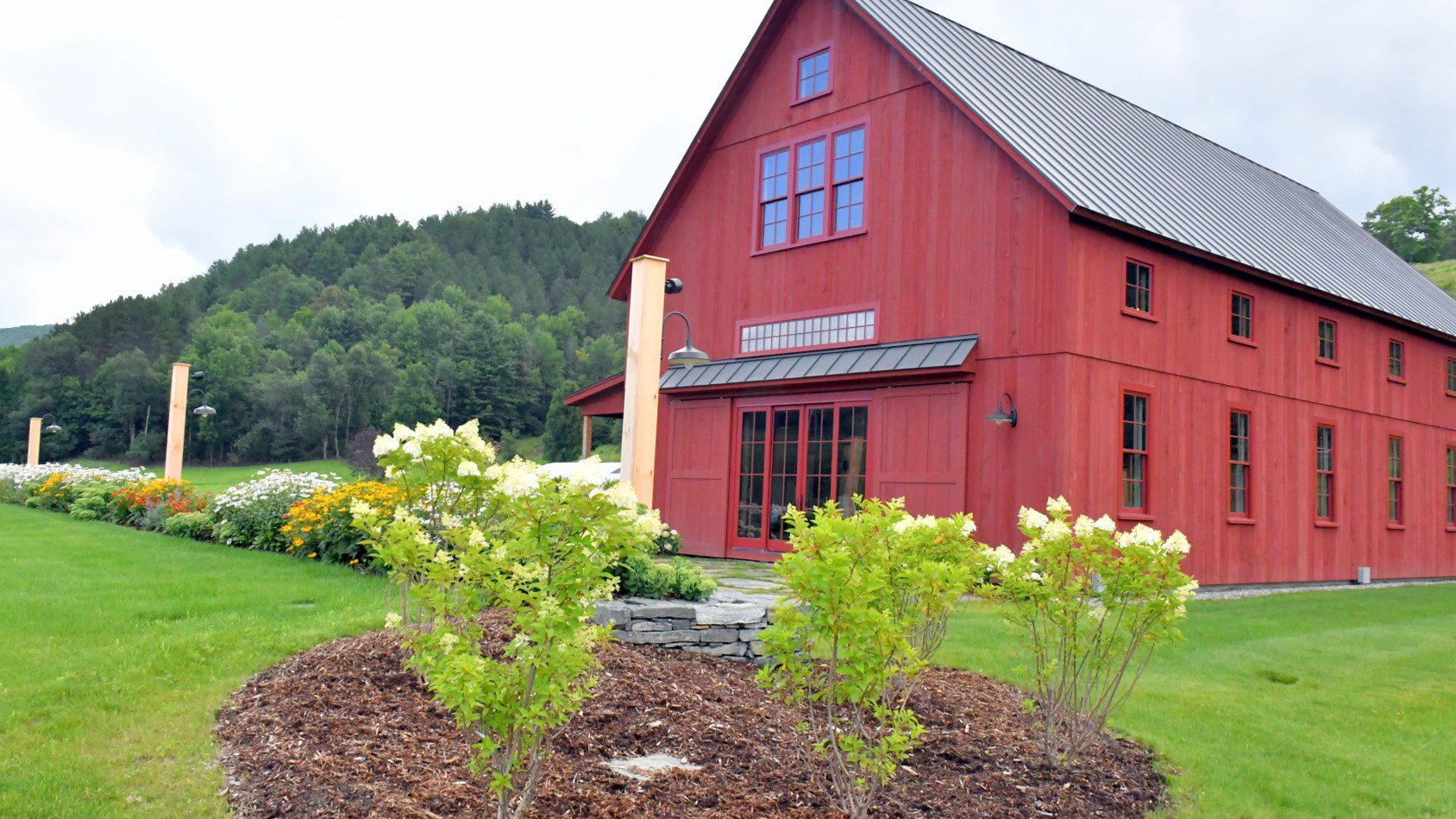By Tom Ayres, Vermont Standard Senior Staff Writer
The Woodstock Town Development Review Board (TDRB) has granted site plan and conditional use approval for an on-farm restaurant at Peace Field Farm, which is located at 650 Pomfret Road.
The notice of decision, signed by TDRB Chair Wade Treadway and posted late Tuesday afternoon by Woodstock Planning and Zoning Director Steven Bauer, follows by two years the granting of conditional approval for an earlier iteration of the on-farm restaurant as an “accessory on-farm business” (AOFB) under the provisions of the state’s Act 143. The conditions that the TDRB imposed on the operation of the proposed restaurant in this week’s granting of site plan and conditional use approval largely mirror those stated in the TDRB’s November 2021 approval.
The pathway to the decision, however, took a decidedly different deliberative and legal track.
Following three months of hearings and executive session deliberations, the quasi-judiciary TDRB on Monday voted unanimously, 4-0, to okay the operation of the restaurant at Peace Field Farm. In contrast, the TDRB members were sharply divided, 3-2, on the AOFB vote two years ago – and that decision followed a series of evidentiary hearings that unfolded over the course of a year, dating back to the fall of 2020.
The most critical factor that smoothed the path to the latest TDRB decision on Peace Field Farm, however, was Woodstock’s adoption of an on-farm restaurant amendment to the town’s zoning regulations in October of 2022, following 11 months of public hearings and deliberations initiated by a citizen petition drive in November of 2021. The final version of the amendment approved by the Town of Woodstock Selectboard defined what an on-farm restaurant is, decoupling it from being considered an AOFB under Act 143. The zoning change also specified that an on-farm dining operation is “not a retail establishment” and set requirements for on-farm eateries in the town’s residential, five-acre (R-5) zoning districts relative to the days, hours, size and scale of operations, menus, parking, noise, and special events.
 The TDRB decision announced on Tuesday explicitly ties the site plan and conditional approval for the proposed Peace Field Farm restaurant to the tenets of the amended zoning regulations, with which the quasi-judicial body found the Peace Field application to be in full compliance. Among the few conditions imposed on the restaurant’s operations by the TDRB order are the planting of evergreen screening in a manner that mitigates the impacts of headlights shining onto abutting properties; the prohibition of outdoor special events and music; and the installation of downcast, shielded, and dimmable exterior lighting to avoid glare.
The TDRB decision announced on Tuesday explicitly ties the site plan and conditional approval for the proposed Peace Field Farm restaurant to the tenets of the amended zoning regulations, with which the quasi-judicial body found the Peace Field application to be in full compliance. Among the few conditions imposed on the restaurant’s operations by the TDRB order are the planting of evergreen screening in a manner that mitigates the impacts of headlights shining onto abutting properties; the prohibition of outdoor special events and music; and the installation of downcast, shielded, and dimmable exterior lighting to avoid glare.
While it has now cleared the final hurdle of regulatory review at the local level, the proposed restaurant at Peace Field Farm remains mired in the state’s Act 250 land use permitting process, where it has labored for more than three years. In September, Peace Field developer John Holland filed an entirely new application for an Act 250 land use permit with the Vermont Natural Resource Board’s District 3 Environmental Commission. The commission’s coordinator, Peter Kopsco, has yet to rule if Peace Field’s application packet is complete, and thus an initial public hearing date for the revised restaurant project has not been set.
Contacted by phone Tuesday evening, Peace Field Farm developer Holland said he was pleased by the latest Woodstock TDRB ruling but chagrined that the Act 250 process for the proposed on-farm restaurant continues to drag on. He added that he thinks the TDRB decision will strengthen his case before the District 3 Commission, which had rejected an earlier Act 250 permit request from Peace Field because it was deemed as not in compliance with the Woodstock Town Plan.
“The best part about this is that now they don’t have to debate about Act 143 and they don’t have to have a discussion about whether a restaurant is retail — all that side sort of stuff,” Holland commented. “We now have zoning in Woodstock that allows for an on-farm restaurant. We’ve complied with it and we have a permit that is conditioned. The TDRB has now dealt with all the site planning issues. I don’t know what’s left for Act 250 — I think the town is clear and I’m not sure what else an Act 250 hearing could do to condition this,” the developer concluded.
Interested parties who participated in the most recent TDRB hearings about Peace Field have 30 days to appeal the TDRB’s Dec. 5 decision to the Vermont Environmental Court.